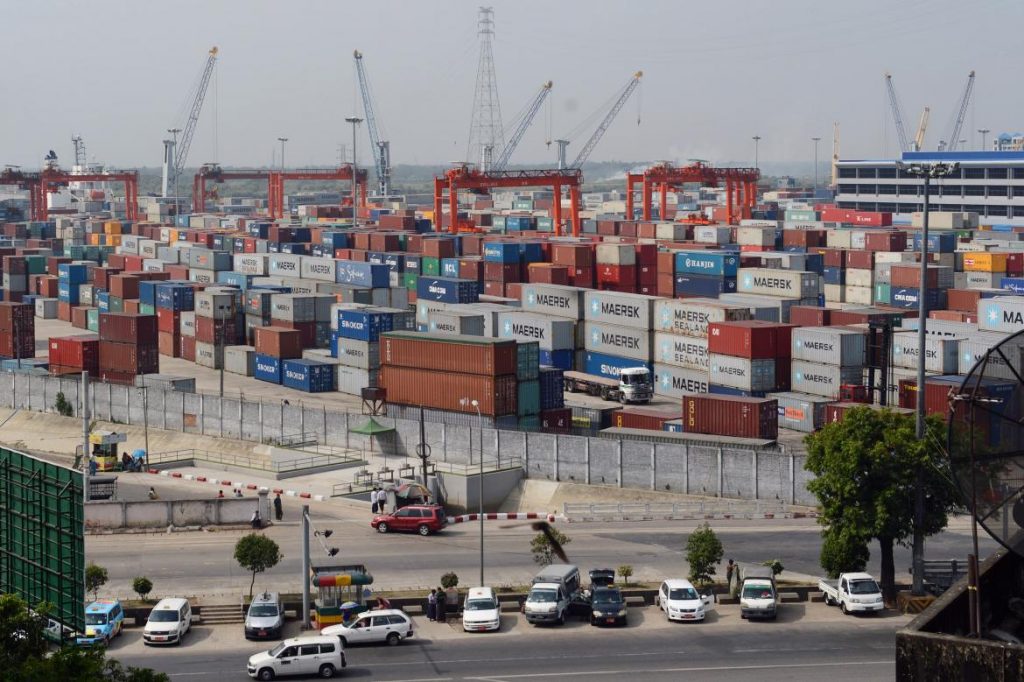A lack of clear government economic policy was the main reason for a ‘drastic decline’ in confidence among the business community over Myanmar’s short-term economic outlook, a survey has found.
It found that only 49 percent of the company executives surveyed expected the business environment to improve in the next year, down from 73 percent in 2016, when the first such survey was conducted.
The slump was consistent among domestic and foreign companies, declining from 76 percent to 50 percent, and 71 percent to 49 percent, respectively.
However, companies were bullish about Myanmar’s mid-to-long-term economic outlook. The survey found that 93 percent of domestic companies and 82 percent of foreign firms were either optimistic or very optimistic about the country’s longer-term potential.
The survey of about 500 executives by consultancy Roland Berger and the Union of Myanmar Federation of Chambers of Commerce and Industry was released on December 13.
Support more independent journalism like this. Sign up to be a Frontier member.
It was conducted before the latest Rakhine State crisis, which was likely to have further reduced investor confidence, said Roland Berger.
The absence of clear government economic policy was cited by 77 percent of companies as a significant or very significant issue, along with a lack of trained staff (77 percent), an unpredictable legislative environment (74 percent) and unpredictable enforcement of regulations (72 percent).
“The lack of a clear government economic policy has become an increasing bottleneck for both local and especially international firms” and was their top overall challenge, the survey found. The issue was a significant challenge for 86 percent of foreign companies, and a very significant challenge for 53 percent.
“What the private sector seems to be looking for are much more specific plans, endorsed by the government,” said Mr Thomas Klotz, managing partner of Roland Berger in Southeast Asia.
“What is missing so far is the communication of an overall economic transformation roadmap, with clear targets, timeline and quick wins, followed by clear, comprehensive and consistent sector policies, at least for key sectors,” Klotz said. The key sectors included financial services, electric power and energy, agriculture, transport infrastructure, tourism and manufacturing, he said.
A survey wishlist of the most needed government measures or procedures was headed by a reliable electricity supply (96 percent). It was followed by transparent policy-making and implementation (95 percent), rule of law (94 percent), transportation infrastructure (94 percent), simplification of simplification of licensing and regulatory procedures (92 percent), regulatory capacity building (90 percent), financial sector reform (90 percent) and education reform and training (88 percent).
There was appreciation of government reforms, with 64 percent of domestic companies and 62 percent of foreign firms saying the new Investment Law had a positive effect on the business environment.
Klotz said Roland Berger believed that stronger sustainable economic growth would facilitate other government priorities, such as healthcare, education and the peace process.
“So more and faster will hopefully be the motto for the government’s economic agenda in 2018,” he said.







